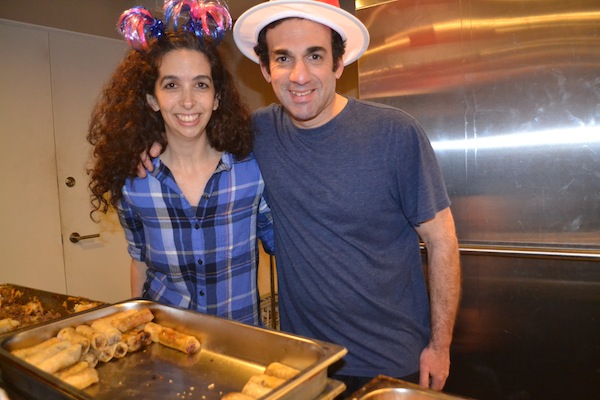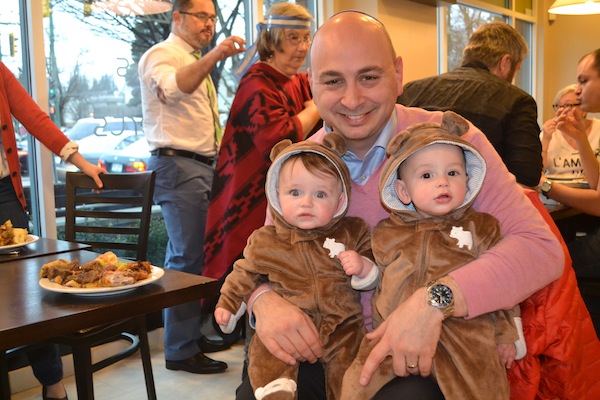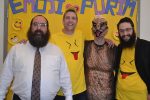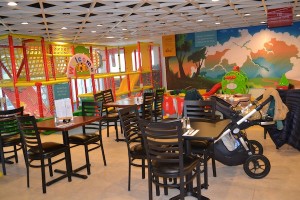The Bayit joined forces with Chabad of Richmond in an emoji-themed Purim celebration held at Richmond’s City Centre Community Centre March 12. Pictured here, left to right, are Chabad of Richmond’s Rabbi Yechiel Baitelman, Bayit president Mike Sachs, Yoav Rokach-Penn and the Bayit’s Rabbi Levi Varnai. (photo by Lauren Kramer)
In every community, and ours is no exception, there are folks who frequently capture the spotlight for their work while others quietly get things done behind the scenes, flying below the media radar. In our new Kibitz & Schmooze profile, we’ll try to highlight members of Greater Vancouver’s Jewish community who are doing outstanding, admirable and mention-worthy work out of view of the general public. If you know of profile subjects who fit this description, please email [email protected].
Kids and anxiety go hand-in-hand, but, when kids’ anxiety gets out of control, many parents turn to Annie Simpson.
The 39-year-old Vancouver Talmud Torah mom boasts a PhD in psychology and 10 years’ experience in pediatric psychology. She founded the Cornerstone Child and Family Psychology Clinic in Vancouver in January, where she works with nine other psychologists. But Simpson’s focus is on young patients with anxiety disorders, including obsessive-compulsive disorder, panic disorder, selective mutism and depression.
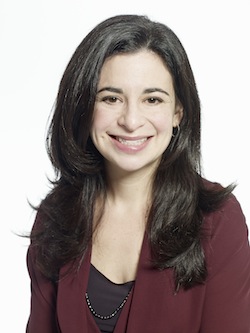
Her interest in selective mutism, an impairment defined as an inability to speak in some social situations despite speaking perfectly fine in others, began six years ago. That’s when Simpson started getting referrals of children with the impairment and wanted to gain a better understanding of how to help them. She traveled to New York to confer with world-renowned expert Dr. Steve Kurtz, helped run one of his camps for selectively mute kids and came back enthusiastic about applying his cognitive behavioural therapy methods in Vancouver.
Within two years, Simpson ran the first camp of her own at the Jewish Community Centre of Greater Vancouver and soon started receiving calls from all over North America, from parents who wanted to enrol their children. Just under one percent of kids have selective mutism.
Simpson’s summer clubs are annual now, and in high demand. “I see a wide variety of impairment, from kids who only speak to one parent to kids who cannot speak at school,” she says. “At the camps, we develop a trusting relationship with the children and then expose them gradually to the feared situation, rewarding their success.”
Camp is Simpson’s favourite week of the year because the progress is so rapid. “The children are improving so quickly and they get so excited about their success,” she says. “With the right supports in place back home, the kids continue to thrive after the camp.”
For parents who don’t seek help for selectively mute kids, Simpson warns that the mutism gets more challenging to treat the older a child gets, and is particularly difficult when kids become teens and have had so many years of not talking.
When she’s not counseling patients, you’ll find this enterprising Vancouverite at B.C. Children’s Hospital, where she’s a staff psychologist in the pediatric OCD Program; at Simon Fraser University, where she’s a clinical associate in the department of psychology; or consulting for AnxietyBC.
***
